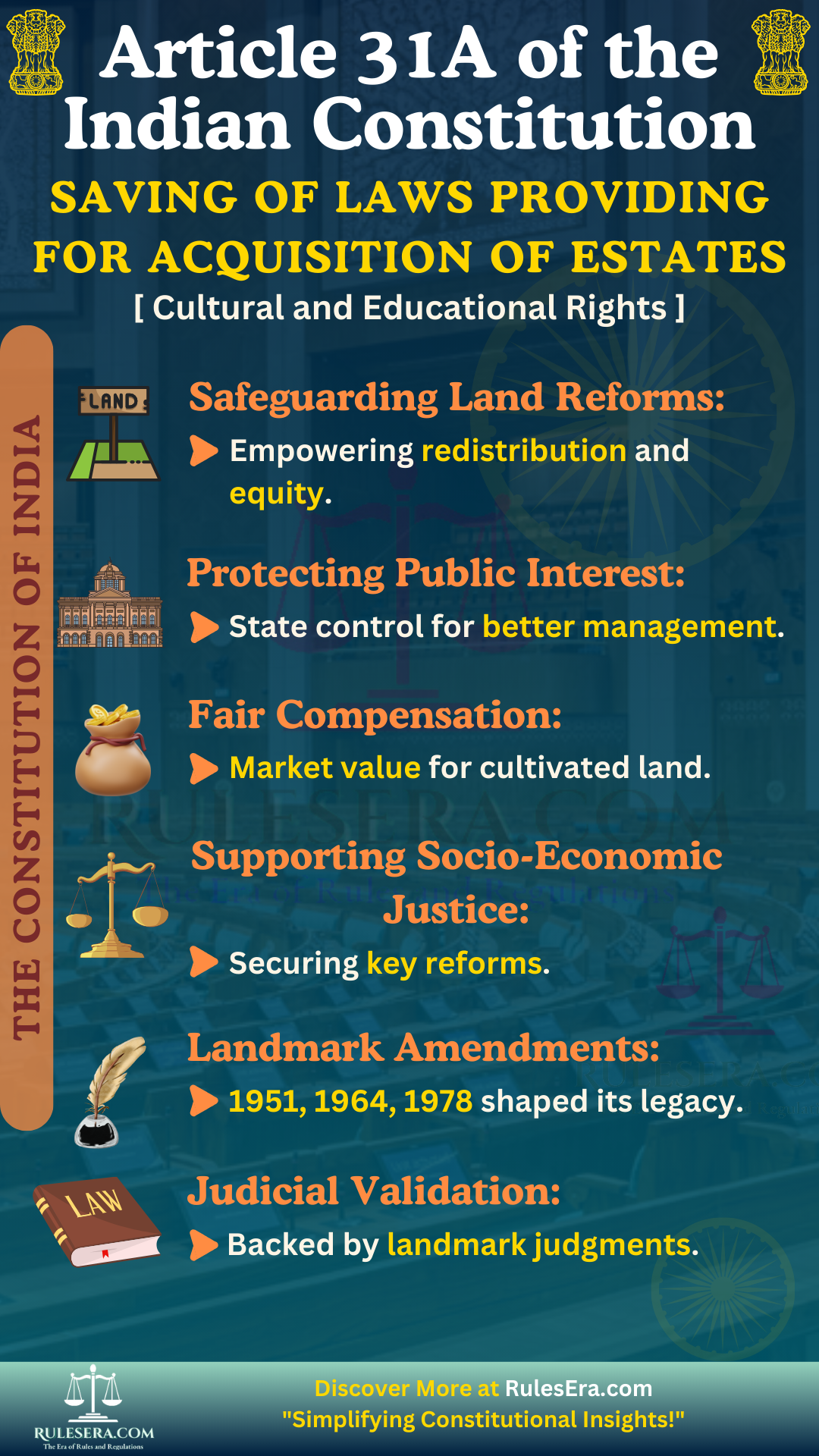Part III: Fundamental Rights
Article 31A: Saving of Laws Providing for Acquisition of Estates, etc.:: Culture and Educational Rights

Notwithstanding anything contained in article 13, no law providing for the acquisition by the State of any estate or any rights therein, or other specific purposes, shall be deemed void on the ground that it is inconsistent with, or takes away or abridges any of the rights conferred by Article 14 or Article 19.
Explanation
Article 31A protects laws that are crucial for socio-economic restructuring, allowing the state to acquire property or manage assets without fear of such laws being deemed unconstitutional. It enables land reform and redistribution initiatives essential for public welfare and economic stability.
Key Aspects of Article 31A
- Land Reforms: Enables state acquisition of estates and modification of property rights, aiding in redistributing land ownership.
- Temporary Property Management: Allows the state to manage properties temporarily to secure public interest or improve management.
- Corporate Amalgamations: Facilitates the merger of corporations in the public interest without challenges based on property rights.
Real-Life Applications
Article 31A has been instrumental in land reforms in states like West Bengal, enabling the government to acquire large estates for redistribution to landless farmers, promoting social and economic equity.
Frequently Asked Questions (FAQs):
Article 31A protects laws aimed at land reforms and property acquisition, preventing them from being challenged based on fundamental rights under Articles 14 and 19.
It allows the state to acquire estates and modify property rights, enabling land redistribution for public welfare without violating constitutional provisions.